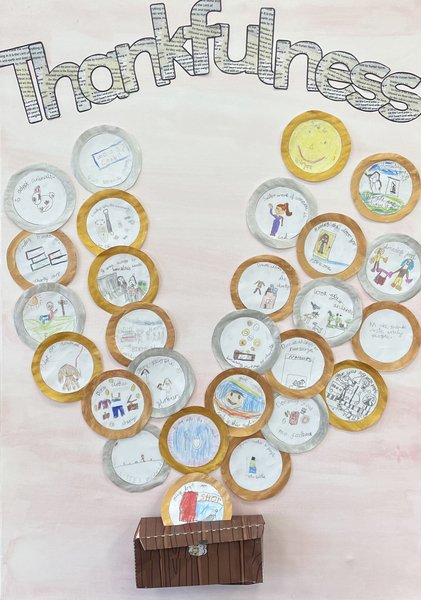Curriculum Organisation
There are three Key Stages: Early Years Foundation Stage, Key Stage 1 and Key Stage 2.
Early Years Foundation Stage:
In Reception, we follow the Statutory Framework for the Early Years Foundation Stage guidelines available at:
https://www.gov.uk/government/publications/early-years-foundation-stage-framework--2

Key Stage One and Two:
In Key Stage One and Key Stage Two we follow National Curriculum guidelines; full details can be found at: https://www.gov.uk/government/uploads/system/uploads/attachment_data/file/335133/PRIMARY_national_curriculum_220714.pdf.
We deliver the curriculum throughout Key Stage 1 and Key Stage 2 through discrete subject teaching.
The curriculum time for each Key Stage is 24 hours and 30 minutes per week. This time excludes registration (2 x 5 mins per day), Collective Worship (30 mins per day), Break time (15 mins per day) and Lunch time (1 hour per day)
Each subject is allocated a sufficient amount of teaching time from the total time available to ensure that there is full curriculum coverage across the academic year.
Class teachers have flexibility to adapt the timetable to enable the curriculum to be taught most effectively.
Our subject overviews and progression maps identify the skills and knowledge that are taught in each subject.
Teachers use high quality and up-to-date resources (such as Unlocking Letters and Sounds, Kapow Primary and White Rose Maths/Science) to plan lessons in each subject that provide meaningful opportunities for children to learn, apply and further develop, their knowledge, skills and dispositions in each discrete subject. Teachers actively seek opportunities to enable children to make conscious connections between different subjects and to connect current learning to previous and future learning.
We aim to place reading at the heart of our curriculum. Teachers identify books to inspire children’s learning; providing meaningful opportunities to read for the purpose of gaining knowledge whilst promoting children’s love of reading. We have a clear and progressive reading spine and texts have been carefully chosen to ensure they are inclusive and with ambitious vocabulary.
Teachers use Bloom's Taxonomy higher-level thinking skills to ensure learning tasks are available in every lesson across the curriculum, that challenge all children, making them 'think hard'. These tasks develop effective learning behaviours, challenge the thinking of our young people and deepens their learning, ensuring they know and remember more at each step of their journey through school. Lessons are meaningful, practical, and often hands-on learning experiences that engage our children in their learning.
Teachers’ planning capitalises on opportunities for children to develop oracy, vocabulary, reading, writing and mathematical fluency within subjects, applying and consolidating skills from Core subjects in Foundations subjects.
Teachers nurture children’s spiritual, moral, social and cultural development; identifying and planning opportunities to explicitly teach our Christian values of hope, courage, compassion, thankfulness, trust and forgiveness.
Senior Leaders and teachers consider progress to be 'knowing more and remembering more'. Progress is analysed and evaluated throughout the year by looking at books, speaking to children, professional discussions and considering assessment information from tests and assessed pieces of work. Summative assessment data is collected as part of our annual monitoring and evaluation cycle and is used to evaluate the of the effectiveness of our curriculum. Decisive action is taken by teachers and senior leaders to implement necessary changes to our curriculum throughout the year to address gaps in performance and accelerate children’s progress.
Teachers use formative assessment to inform quality first teaching across the curriculum. Ongoing formative assessment enables the class teacher to identify misconceptions and identify children who are struggling or who need further challenge. Teachers use this information to adapt ‘in the moment’ teaching and longer term planning so that lessons are planned effectively to meet all children’s learning needs in all lessons across all subjects.
We set consistently high expectations for all children in all subjects across our curriculum. We encourage all children to take care and show pride in their work in all subjects. At Moseley CE Primary School we believe that neat, well-formed handwriting and presentation of written work helps to raise standards, as the pupils take pride in and have a sense of ownership of their work. Teachers consistently set high expectations for presentation; promoting the school’s handwriting and presentation policy in all written work and encouraging children to try their best, so that they produce their best work in all subjects.
Teachers plan lessons so that pupils with SEND can study every National Curriculum subject, and ensure that there are no barriers - in our school, every pupil achieves well.
Teachers also take account of the needs of pupils whose first language is not English. Lessons will be planned so that teaching opportunities help pupils to develop their English, and support pupils to take part in all subjects.
Further information can be found in our statement of equality information and objectives, and in our SEND policy.








